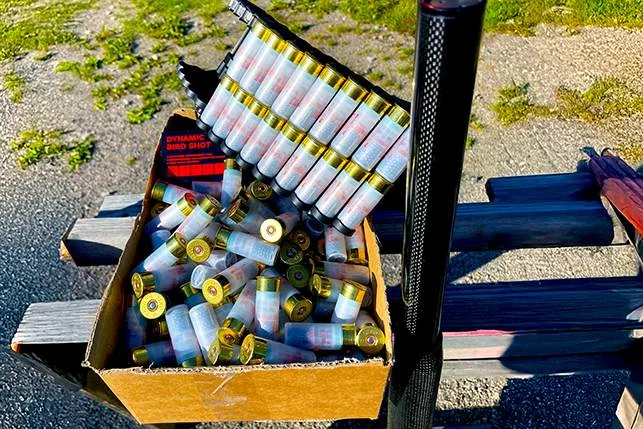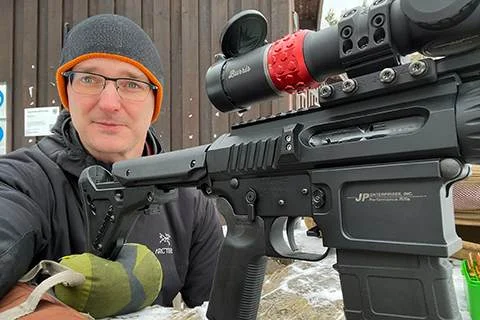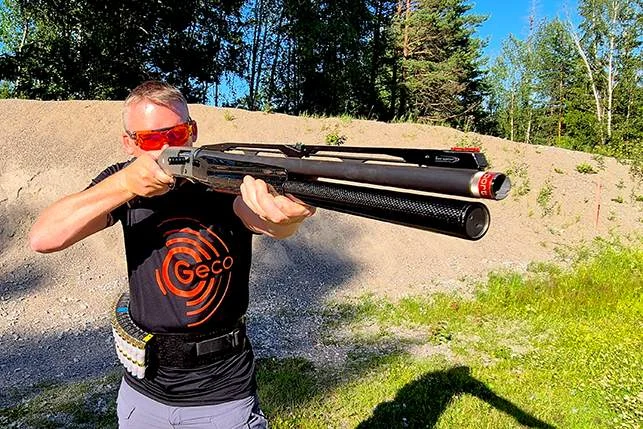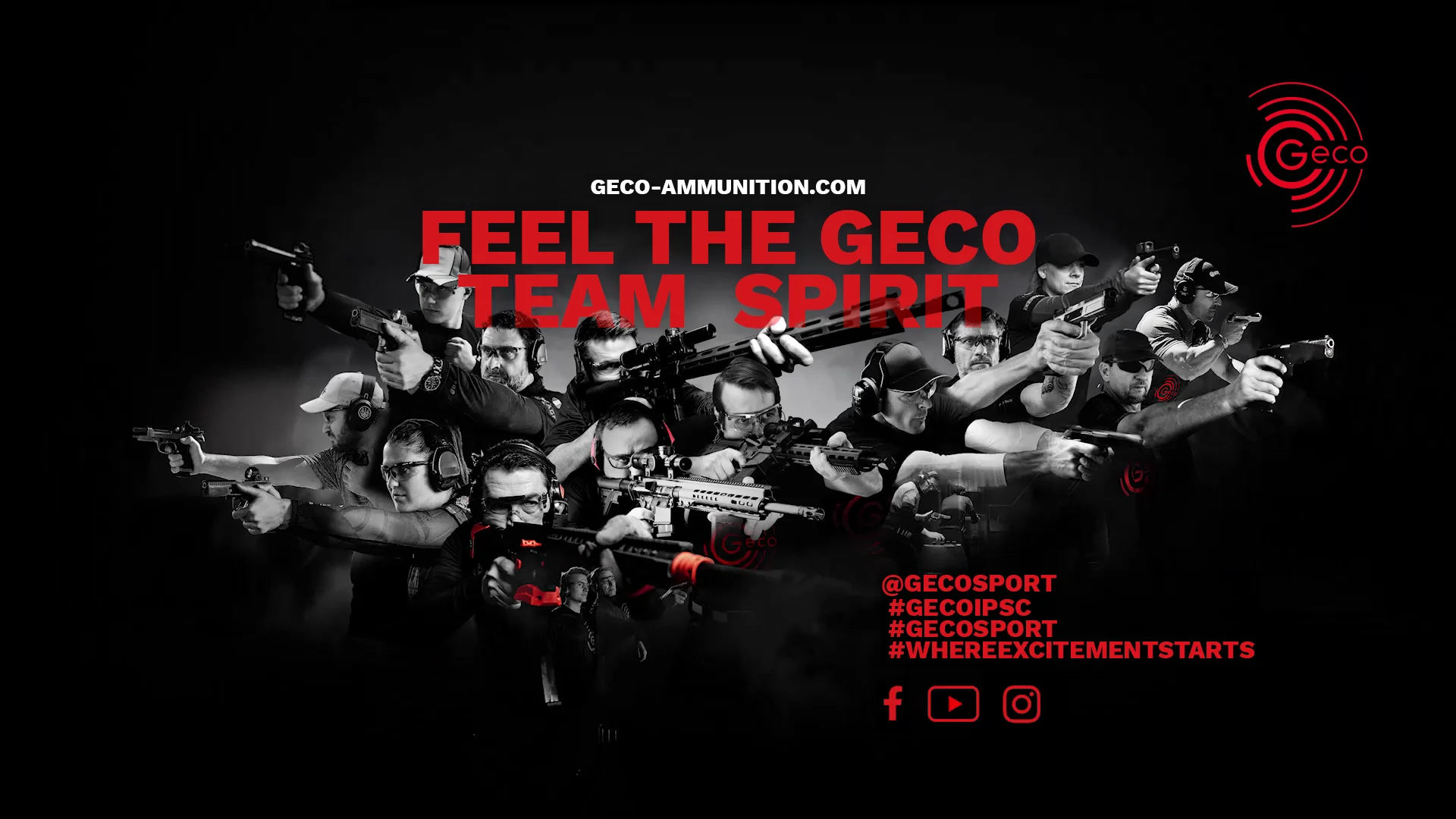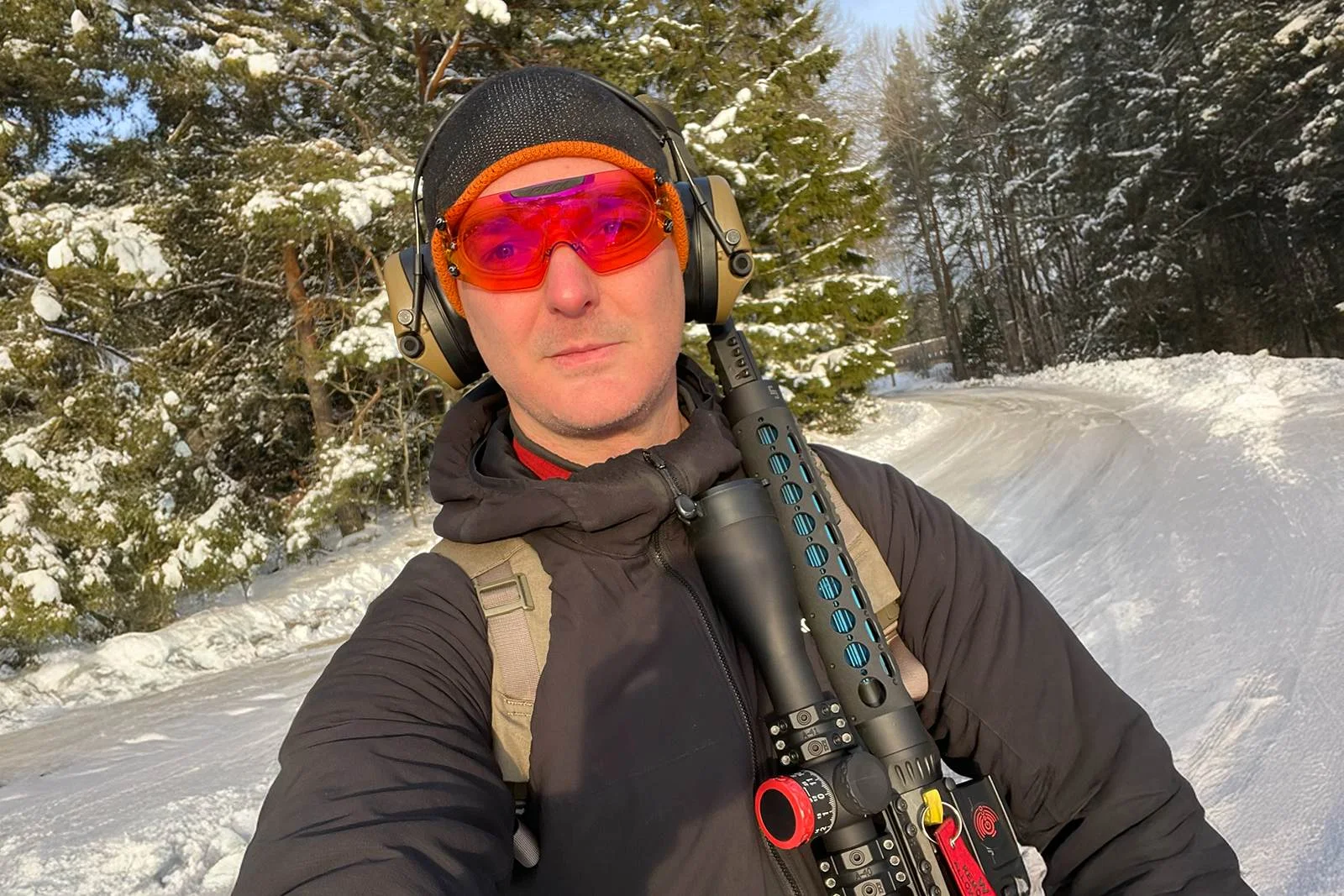
SHOOTING PORTRAIT:
Thomas Edvardsson
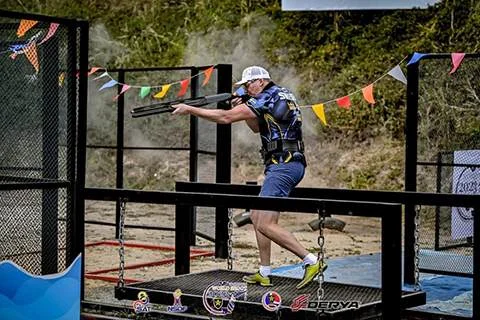
GECO IPSC Team Shooter
Thomas Edvardsson, Sweden
Thomas Edvardsson born 1979 in Norberg Sweden. Entrepreneur in the construction sector by profession.
Started shooting in 2007 and found the IPSC shotgun discipline in 2013 and immediately got hooked. He has shot 3 World Championships and improved his results by leaps and bounds from championship to championship with his best result so far in Thailand 2025 where he came in 12th place in standard division. The next goal is the World Championships in Greece 2026. He is also working on developing his DMR rifle shooting, a new discipline in Sweden since 2023.
Instructor and coach first, shooter second
Thomas has steadily developed his shooting since 2013. Not only to one of Sweden's top shooters in Shotgun and other diceplines but also to a top shooter in the world. At the same time, he places great importance on helping others and training both top shooters and beginners with the same enthusiasm.
In addition to his job and his own training, Thomas trains and coaches both beginners and more advanced shooters in his spare time.He also helps as a shooting instructor for the Swedish armed forces.
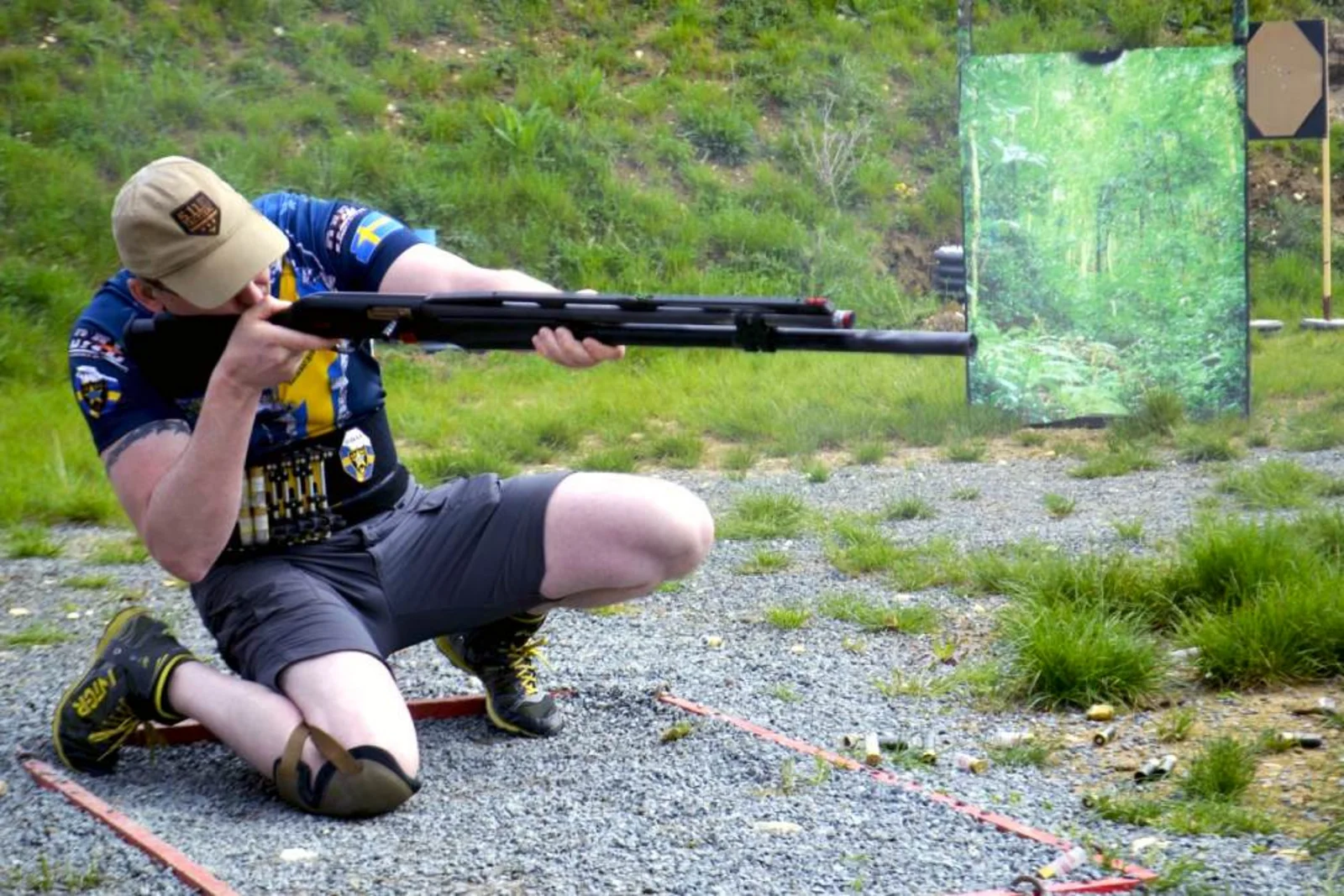
Benelli M2 + King Carbon rig + and Geco amunition = success
I shot a Benelli M2 and all my wonderful Geco amunition is easy to load from my King Competition Carbon shell holder. To help me see, I have Pilla glasses with different lenses and a sight rib from Tony systems on the gun.
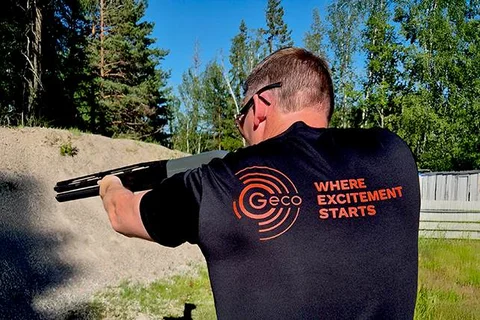
"Success is never given but is earned through hard work and sacrifice."
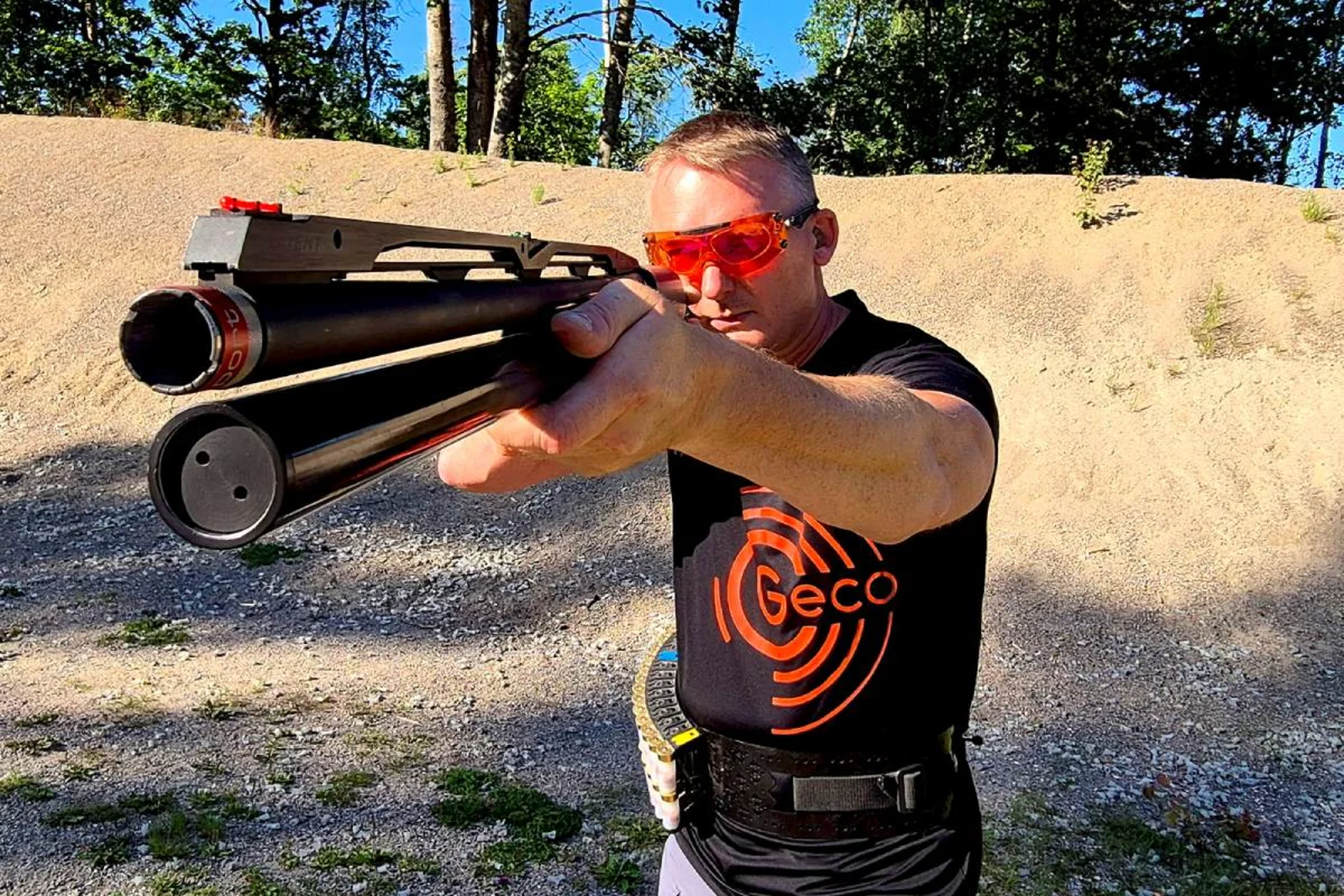
Quick-fire interview with Thomas Edvardsson – Q&A Session:
HOW DO YOU PREPARE DURING THE OFF-SEASON?
What do you look for in dry fire training and what areas do you work on? How much time per week do you spend on dry-fire training (weapon handling, target acquisition, changing body positions, different shooting positions, etc.)?
With my job, I don't have much time to spare during the week so I prioritize live fire which I do 3-4 days a week. Especially with shotguns I find shooting is better than dry fire training.
Do you do any physical work? If so, what kind? (Endurance or cardio, strength endurance, maximum strength, speed, agility, coordination exercises, core stabilisation, etc.)
I try to keep a schedule where I run a couple of times a week. So mostly cardio.
What about mental training? What methods do you find most helpful? (Visualisation techniques, breathing exercises, etc.)
Through my work, we work a lot with mental training, both of ourselves and how we work with others. Something I have had a lot of help with in my shooting. However, you are never fully trained and perhaps the most important thing is to realize that you always need to work on it.
WHAT INVENTORY CHANGES ARE PLANNED AND WHEN?
Changes to the gun or sights?
Always evolving, always trying new things and never seeing my gun as finished. But the older I get, the more important parts are well defiend sights. So trying out different sights right now.
Are there straps or other equipment you would like to change/improve?
Shoes are a consumable item I will put more emphasis on. Simply the right shoe for the surface and I will have several pairs with me from now on.
What is your favourite piece of equipment and why?
It's hard to choose one thing, it's more so when you get a combination of things that work well as a whole.
What is your favourite firearm and why?
My Benelli M2 of course. Over 10 years old and runs like clockwork. It is reliable and does not require much in the way of maintenance.
Besides guns, straps or the obvious, what equipment do you think every IPSC shooter should have?
Investing in a pair of proper shooting glasses, good vision and the ability to change lenses according to weather and light is a game changer and of course good hearing protection, a good pair of earmuffs will last for many years and is one of the most important pieces of protection you can buy.
HOW DO YOU OBTAIN AND TEST YOUR AMMUNITION?
If you load your own ammunition, which components are most important to you? Factor, performance/accuracy, recoil?
I load some ammo but mostly for DMR and hunting. For shotguns I only shoot GECO DYNAMIC BIRD SHOT, GECO BUCK SHOT and GECO COMPETITON SLUG.
How much ammunition do you use per year for each firearm?
For 223 and 9mm it's around 5-10k each and for shotguns it depends on the year. "Regular" years 10-15k Birdshoot and for World Shoot years 25-30k.
Are you separating training ammunition and special competition ammunition, or do you use one type for everything?
If possible, I prefer to train with match ammo.
SEASON PLANNING
How many matches do you shoot in a normal year?
6-10 pistol/PCC matches, 5-10 DMR matches, for shotgun 10 lv 2 and 3-6 lv 3 matches . But during the WS years I almost exclusively shoot shotgun.
How many international trips have you planned for the coming year?
4 in total. Poland for the Polish Championships, Hungary for CESO or equivalent, the warm-up match in Greece and of course the World Championship in Greece. If it fits the schedule, there could also be a match in Finland.
What is your main competition for the coming year?
Shotgun World Championship in Greece.
How will you prepare for the main competition? Will there be any rest periods, test competitions or other special phases?
In the north we have a natural rest period from November to March due to the cold. It gets too cold to get regular training. But from May we train as much as we can. The most important pre Worldshot match is the warm-up match in Greece so we see what we need to train extra on.
SUCCESSES AND DEFEATS
What is your motivation to participate in the ISPC sport or what is the special attraction?
You compete and train with friends, you meet new people from all over the world and the community is great. There are several different disciplines and there is at least one for everyone.
What was your most successful/pleasurable competition (last season) and why?
For me it was probably the Nordic shotgun championships in Finland. I came in 3rd place and both the match and the weather were perfect.
Always fun and important to compete against some of the world's best shooters, and Finland has many of those.
What was your worst competition and why?
For me it was the European Championship in Hungary (13th place), I had trained hard for the competition. but I got heat stroke on day 2 and I was not prepared enough for the Slug stadges. Even though it didn't go as planned, I learned important things to take with me to the World Shoot next year.
PARTICIPATION IN A COMPETITION
What is your focus during the walkthrough?
I always have the plan ready beforehand, so when I get to the walthrough, the focus is on where I see the plates and where I place my feet.
How do you deal with being the first shooter in the first stage?
Being first is not a problem for me, rather I think it's nice to shoot first. Of course, there is a disadvantage at timing stages but it is part of the game so just adapt.
How long before the first competition shot do you arrive at the shooting range?
Normally the day before on all lv3 and upp, and I'm happy if i can watch the prematch. But I always arrive well in advance of the start.
What diet do you follow or how do you keep fit during a competition?
I eat a proper breakfast and then snack on nuts and other things during the day. If it's been a long day I can have a lighter lunch, but normally not.
Do you have a formula/basic attitude for approaching a competition? (Do you focus on speed or hits; do you occasionally push your own limits/step out of your comfort zone or take deliberate risks; do you prefer to be in a team with 'better shooters' or vice versa etc.?)
My attitude is to have fun and that all courses of fire are as well executed as possible. i think about moving as fast as possible and aiming on every shoot. I always try to adapt to how I feel and not go in too excited or too calm. in shotgun smoth is fast. Going with experienced shooters is an advantage, everyone knows what they have to do and is ready on time.
Which stage elements/designs do you like best, and which ones not so much? (Long courses, short courses, moving targets, memory stages, field courses with lots of running, stages that require good accuracy, spray and pray stages, etc.)
I love long courses and when you can shoot many targets while moving. Run and gun!
But I appreciate a match that has a lot of variety and where you get to shoot many different ones. Shooting slugs on poppers 50m out isn't particularly fun. But it's something I need to practice so I choose to see it as a fun challenge.
What wisdom would you give to an IPSC novice or anyone interested in the sport on his or her first day?
Focus on safety, have fun and don't worry about what others think. We all start somewhere.
THANK YOU THOMAS!

